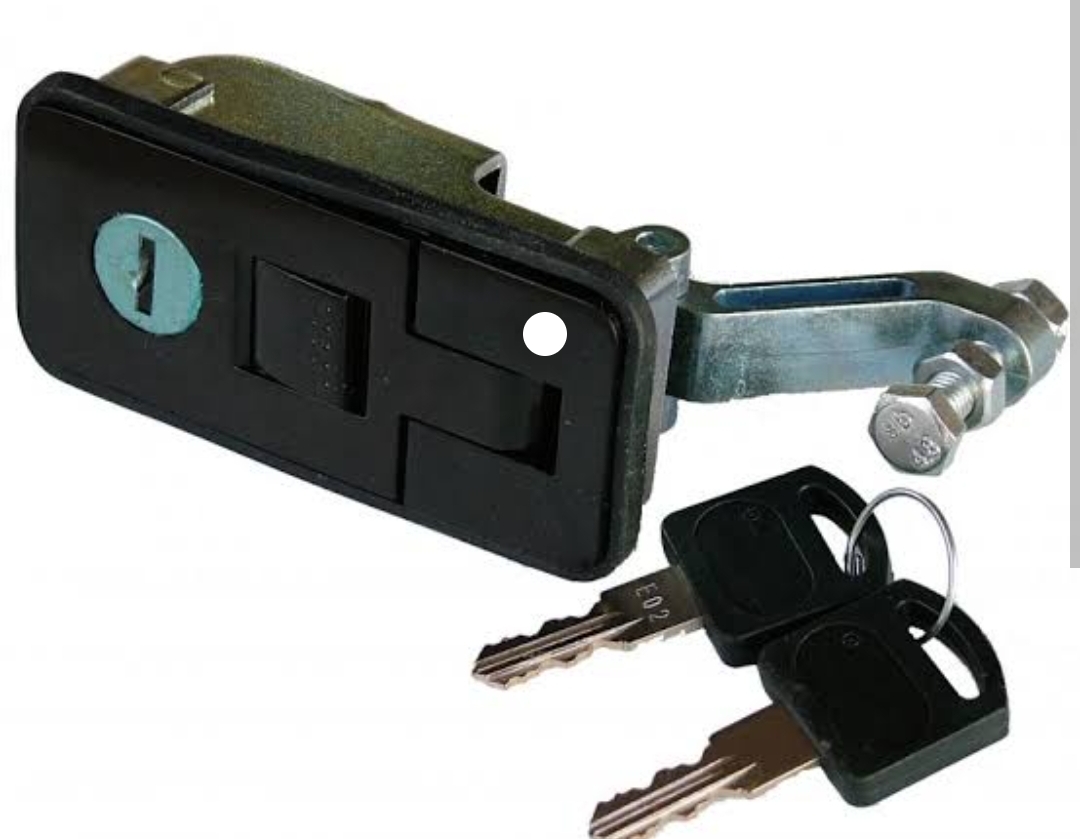A Step-by-Step Guide to Filing a Maritime Accident Claim

In the vast expanse of maritime activities, accidents can happen, leaving individuals with injuries and uncertainties. Suffering an injury in a maritime accident can be a traumatic and confusing experience.
Filing a maritime accident claim is a crucial step toward seeking compensation and justice. Many questions may arise regarding insurance claims, legal rights, and recourse options.
Engaging the services of an experienced Maritime Accident Attorney is a critical aspect of this process. An experienced attorney specializing in maritime law can guide victims through the legal nuances, assess the validity of the claim, and advocate for their rights.
Read more about maritime accident attorneys who specialize in providing legal representation and assistance to individuals and companies involved in accidents and incidents that occur on navigable waters.
An experienced Maritime Accident Attorney plays a key role in ensuring that victims receive fair compensation for injuries, medical expenses, and other damages incurred during maritime accidents, from identifying liable parties to navigating potential defenses.
To navigate the complexities of a maritime accident claim and ensure that victims receive the compensation they deserve, expert help is essential. A crucial first step is understanding the intricacies of maritime law, which governs accidents that occur on navigable waters.
This comprehensive guide aims to explain the intricate process, offering insights into the key steps and considerations involved.
Determining If Maritime Law Applies
The first step is confirming whether maritime law governs your accident. Maritime law applies to incidents occurring on navigable U.S. waters and accidents involving seaworthy vessels. The location of the accident and the vessel’s condition help determine if maritime laws apply.
- Accidents occurring within state waters (up to 3 nautical miles from shore) may involve overlapping state and maritime laws.
- Incidents occurring farther out at sea would clearly fall under maritime jurisdiction.
- A vessel’s unseaworthy condition could preclude the application of maritime law.
Properly characterizing the incident is crucial for determining applicable laws.
Types of Maritime Accidents
Maritime accidents encompass a diverse range of incidents that occur on or near navigable waters. To determine liability and seek compensation, it is crucial to understand the various types of maritime accidents. Here’s a detailed exploration of some common categories:
Offshore Accidents – These incidents typically occur in open waters, often involving structures such as oil rigs, platforms, or drilling vessels. These accidents result from equipment failure, human error, adverse weather conditions, or a combination of these factors. Workers may suffer injuries such as falls, chemical exposure, or equipment malfunctions.
Vessel Collisions – Vessel collisions involve accidents between ships, boats, or other watercraft. Collisions may be caused by navigational errors, equipment malfunctions, poor visibility, or failure to follow maritime rules. Those on board may suffer injuries ranging from minor to severe, and vessels may incur substantial damage.
Cruise Ship Injuries – Cruise ship injuries encompass incidents that occur during a cruise, affecting passengers and crew members. Cruise ship injuries can result from slips and falls, medical negligence, onboard accidents, or even criminal activities. Passengers and crew members may suffer injuries such as fractures, illnesses, or emotional distress.
Fishing Boat Accidents – Accidents involving commercial or recreational fishing vessels fall into this category. These accidents can result from equipment malfunctions, adverse weather conditions, collisions, or capsizing. Fishermen may face injuries like drowning, hypothermia, or injuries related to the handling of fishing gear.
Port and Dock Accidents – Accidents occurring in port areas or docks, involving loading, unloading, or the movement of cargo. Port and dock accidents can be caused by equipment malfunctions, improper loading procedures, or inadequate safety measures. Workers in port areas may face injuries like crush injuries, falls, or incidents involving heavy machinery.
Recreational Boating Accidents -These accidents involve private or rented boats used for leisure activities. Recreational boating accidents often result from operator inexperience, alcohol use, speeding, or failure to follow safety regulations. Individuals involved may suffer injuries ranging from minor cuts and bruises to severe trauma.
Diving Accidents – Incidents that occur during underwater activities, such as diving or underwater welding. Diving accidents can result from equipment failure, lack of proper training, or failure to follow safety protocols. Divers may experience injuries like decompression sickness, drowning, or injuries from underwater hazards.
Understanding Your Rights and Responsibilities
Under maritime law, injured parties have certain rights and responsibilities they should comprehend.
Interpreting Liability Waivers
You likely signed waivers limiting vessel owner liability. Fully comprehend implications before settlement.
- Review the scope of legal protections waived. Do gross negligence exceptions exist?
- Check dates, and accident circumstances covered.
- Consult maritime lawyers regarding waiver enforceability.
Examining Negligence Circumstances
The negligence concept features prominently under maritime law. Probe the liability party’s duty of care and negligence contributing to the incident.
- Did vessel operators disregard reasonable safety precaution standards?
- Do subject matter experts confirm negligence?
- Can evidence prove negligence caused your injury?
Meeting Reporting Timelines
Sharp federal reporting deadlines exist for maritime injuries. Miss these and forfeit damage recovery rights.
- Immediately notify vessel owners of serious accidents.
- Contact insurance shortly after even if the injury seems less severe.
- Failure to quickly engage maritime lawyers risks missing deadlines.
Understanding legal rights, obligations and reporting timeframes is imperative.
Step-by-Step Guide for Filing Your Claim
Follow these key steps when submitting your maritime accident claim:
1. Notify Insurers Quickly
Promptly alert all potentially liable parties – vessel owners, operators, insurers, etc. Delayed notifications could void insurance coverage.
- Contact vessel management right away.
- Notify insurance ASAP, abiding by policy timelines.
- Secure lawyers for precise reporting guidance.
2. Gather Evidence Methodically
- Secure medical reports detailing injuries sustained.
- Obtain witness statements recollecting the incident.
- Gather vessel logs, safety protocols, and any other documentation supporting your claim.
3. Submit Claim Forms and Paperwork
Provide insurers and liable parties the mandatory documentation, including:
- Completed claim forms
- Medical assessments and treatment records
- Applicable police reports
- Supporting incident reports from crewmembers, witnesses, etc.
4. Negotiate Your Settlement
Work with claims adjusters to negotiate an optimal settlement reflecting:
- Extent and severity of injuries
- Impact on finances and livelihood
- Duration of recovery period
- Degree of disability suffered
Thorough preparatory evidence-gathering facilitates effective settlement negotiations.
Available Legal Resources
If settlement talks prove unsatisfactory, consider additional legal options, such as:
Personal Injury Lawsuits – Sue negligent parties to recover accident costs, lost income, etc.
Jones Act Claims – Seamen injured due to employer negligence can seek damages under this law.
Longshore Act Claims – Cover harbor workers injured on navigable waters.
Unseaworthiness Claims – Sue vessel owners for injuries caused by unsafe ships.
Experienced maritime attorneys can help craft an impactful legal strategy incorporating the above options.
The Limitation of Liability Act
The Limitation of Liability Act caps accident claims against boat owners based on the post-incident value of the boat. However, it does not limit claims for injury or death. The act can significantly affect the upper limit of your claim, underscoring the importance of seeking legal guidance.
Securing Legal Assistance
The complex web of maritime laws and claim processes necessitates procuring legal help from attorneys well-versed in admiralty/maritime law. They can:
- Interpret how maritime laws apply to your case
- Challenge liability waivers signed
- File lawsuits or claims before expiration dates
- Counsel negotiating optimal settlements
- Offer other assistance expediting a favorable resolution
FAQs
- What is the statute of limitations for my maritime injury claim?
Three years from the accident date for maritime personal injury/death claims. Notify insurers immediately nevertheless.
- How does accident location affect my recovery options?
State vs. international waters determines applicable laws. Lawyers can strategize optimal claims accordingly.
- What is a vessel owner’s liability for my injury?
Varies based on negligence, waivers signed, and laws applied. Experienced maritime attorneys can help determine realistic liability.
Pursuing accident injury claims requires understanding complex legal frameworks and claim processes. Equipping yourself with the knowledge and assistance of experts in maritime law facilitates recovering your rightful due. Use this guide as your trustworthy roadmap toward achieving resolution and closure.




